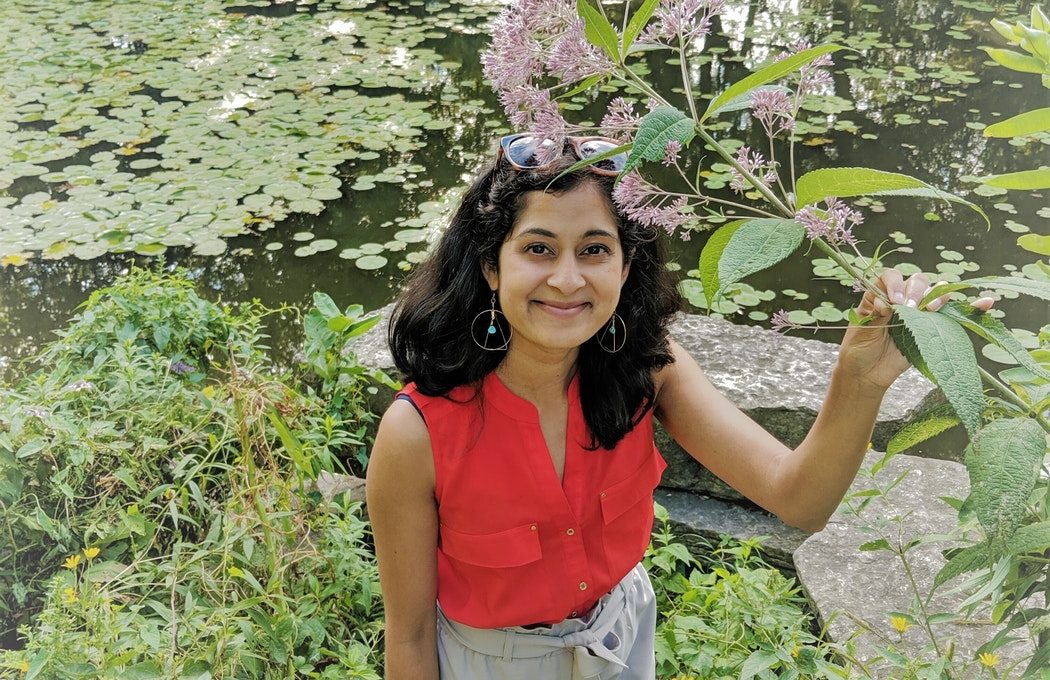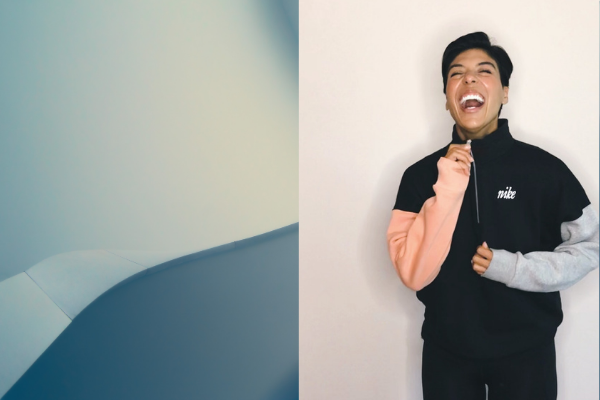Name: Mitha Rao
Location: Chicago, IL
What do you do?
I am the founder and managing attorney of Rao Legal, LLC. I serve clients in the areas of estate planning, elder law, and small business counseling.
What’s a typical day like for you?
I try to map out my work schedule in terms of weeks. On Sundays, I’ll spend time reviewing upcoming meetings and calls, drafting deadlines and marketing-related activities. Then, I’ll structure each day around tackling these commitments.
Typically, I use my morning hours for drafting. I am an early riser, but my clients generally do not want to meet before 10:30 am. That allows me to use morning hours to fully focus on drafting with attentiveness and care towards each client’s needs and goals.
Starting from about 10:30 am until 3:00 pm, I am engaged in client-facing meetings and calls. I am consulting with clients who are beginning the estate planning process, discussing suggested rewrites to a small business client’s contract, and conferring with clients who have reviewed draft estate plans I prepared.
After 3:00 pm, I try to keep my day flexible. If I need to return to drafting, I will do so. I may also use this part of my day to prepare engagement agreements, send invoices and engage in marketing-related activities.
What inspired you to join the legal profession?
Prior to law school, I was involved in a variety of activities centered around community betterment. This included community organizing and working with the elderly. I enjoyed helping vulnerable populations. I thought that the law was a great tool to help these populations feel more integrated, understood and accepted. That motivated me to go to law school. I think my understanding of who I could help and how I could serve greatly expanded while I was in law school. At that point, I recognized that the law was an imperfect tool that could help many, and I was more open and flexible towards using it to serve people and businesses more broadly.
What inspires you to get out of bed every day?
What inspires me to get out of bed every day is to live my life according to my values — in a way that honors myself and those I love. At the end of each day, I want to feel at peace knowing that I have done the best that I can, that I’ve done the right thing for myself and for those around me, and that I’ve contributed in some small way to helping others.
How do you define success?
For me, success is living my life purposefully and meaningfully. Part of that involves using whatever skills I have to help others. Ultimately, it’s about living a life in accordance with my values.
What’s been a challenge on your path and how did you work through it?
Understanding the importance of the fine lines. We hear about these all the time and yet we often learn how to navigate them through lived experience. These fine lines are the difference between what you can control and what you cannot. The difference between what’s about you and what’s not. Honoring your needs and knowing what your boundaries are.
Navigating those fine lines earlier in my career was definitely a challenge as I was trying to develop personal confidence and my professional identity. I am now more confident about who I am and how I can best serve people. Alongside that, I now understand and appreciate those fine lines.
What has been your proudest moment professionally?
It’s easier for me to think of a feeling rather than a moment. I felt proud to start my own business. I felt proud to have the courage to make that decision and to build a practice around honoring my values. It’s a joy to get up every day to help people in a way that honors doing the right thing, whatever that right thing is for you.
What do you enjoy doing outside of work?
I enjoy all types of fitness, whether it’s high intensity interval training or mind-body fitness, like yoga. In spring and summer, I run and hike outdoors and also enjoy birdwatching. I enjoy exploring any form of art, whether at a museum or a concert, checking out new restaurants, and cooking, all of which teach me about other cultures. In fact, my husband. Virag, and I love to travel so we can experience other parts of the world.
What’s your go-to wellbeing activity?
Currently, it’s meditation. Meditation helps you to focus, to have a clear mind, to be in the present and to be fully engaged. And it’s a great reminder that there is always a pause between you and the reaction, there’s space between you and the emotion, and there is a lot of freedom to take things in a positive direction. I use a combination of apps – Let’s Meditate and Stop Breathe and Think. More recently, I discovered Sharon Salzberg’s Real Happiness Meditation Challenge and am really enjoying it.
The best book you’ve read or podcast you’ve listened to recently?
I really like this podcast called On Being. It’s a podcast that overlaps with some of the themes of OPLN. It engages in deep, meaningful conversations on a variety of issues, whether it’s mindfulness, happiness or success. There are conversations ranging from seven-minute snippets of insight to a more extended conversation.
What is one thing about you that you think people would be surprised to learn?
I grew up performing Indian classical dance around the country, so I have a lot of moments when I am thinking imaginatively, dreamily and even whimsically. I have a silly side to me that not many see.
If you could wave a magic wand and change one thing about the legal profession, what would it be?
We are already at this moment, and I think it’s a moment ripe with a lot of possibilities. When I graduated from law school, there were three typical paths: the corporate path, the government path, and the non-profit path. Sometimes, you felt like you would be deviating and even failing if you didn’t follow those paths.
As you mature in the profession, you start to realize that there are more paths and that there’s many more models of success than you initially realized. I oftentimes find a lot of inspiration reading the stories of people who are successful in our profession. One thing I learned was that some of the well-established firms and non-profits were started by founders who were rejected for who they were. They couldn’t find employment because of race, religion, gender, etc., and therefore built their own practice. That really re-oriented the way I looked at the profession. There are many more paths and understandings of success than the profession maybe initially shares.
I think that we are now in an unprecedented moment in terms of our health and our economy. One of the possibilities from this moment is that people, largely by necessity, are going to see and appreciate how many different paths there are to success. Maybe I’ll try waving my magic wand to help us get there more quickly!
What is one new thing you are hoping to learn from others in this community?
I think one of the lessons that I understood abstractly but now appreciate more concretely is that there will always be a hustle involved in solo practice. You have to constantly build and nurture relationships. I’d love to learn more about how people are navigating the constant hustle and continually working on building relationships.
And what is one thing you are looking to share with others in this community?
I think I offer a secure and supportive space in which people can be themselves and ask questions that they may otherwise feel judged to ask elsewhere. I think that’s a huge part of my practice, as well, but I think it is a fundamental part of who I am. I try to bring a sense of open-mindedness to my interactions with everybody and create a non-judgmental space.








